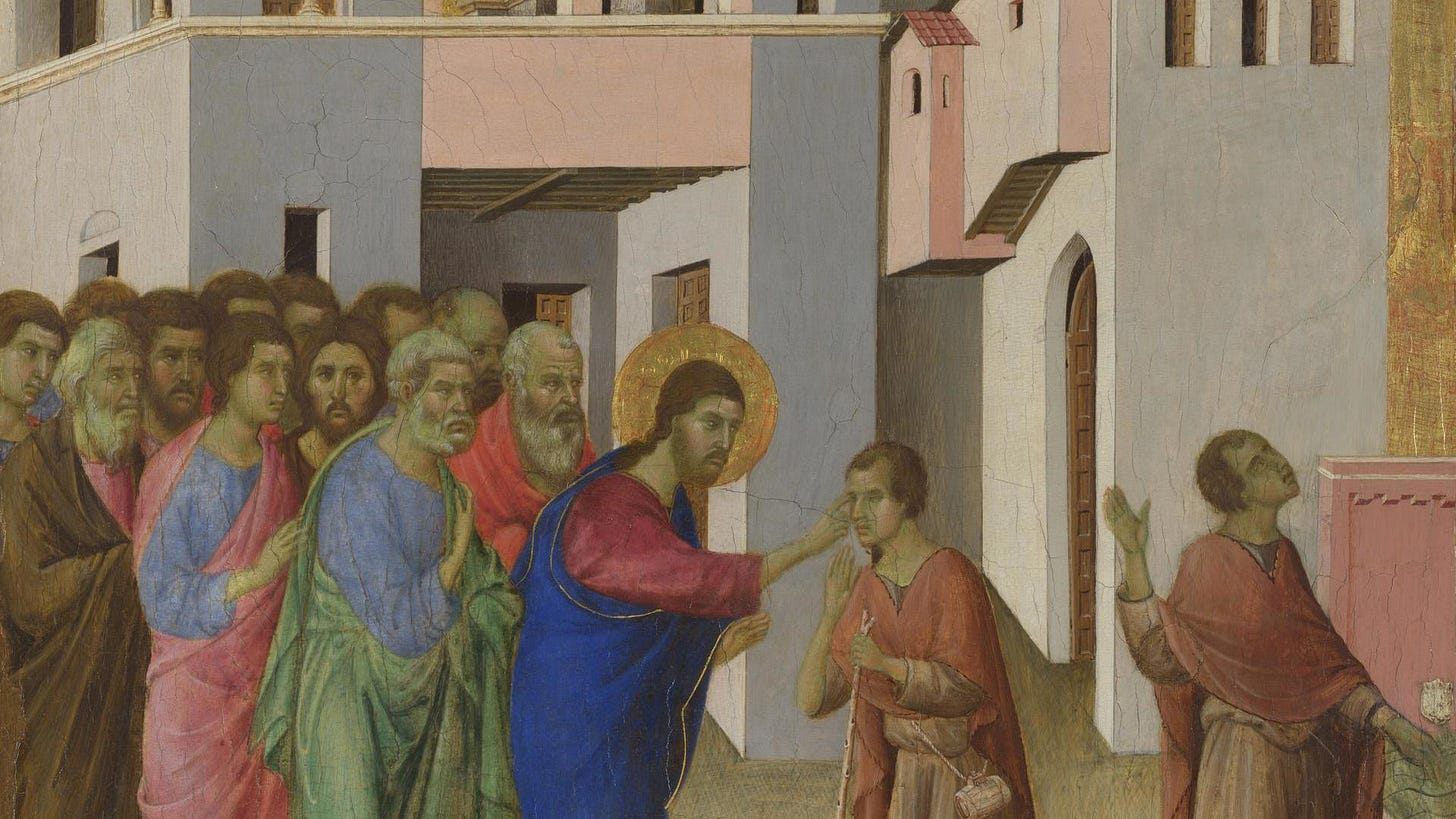What are we supposed to do with the darkness in our lives?
What are we supposed to do with the darkness in our world?
The response that Christ gives to these questions in the Gospel today is different than what we might expect: Neither he nor his parents sinned; it is so that the works of God might be made visible through him.
We are not supposed to run from the darkness or try to escape from the darkness. The darkness in our lives or in our world needs to be conquered and turned into a source of light. The blindness of the man in the Gospel becomes a source of light. The reality of suffering and death on the cross becomes a source of resurrection and new life.
The conquering of darkness in our lives means that our lives remain in a state of constant, perpetual conversion. There is darkness in each of us, and that darkness needs to be conquered and turned into a source of light. But for it is the reality of change that maybe terrifies us the most. I find it fascinating how in the Gospel today, the pharisees interrogate every witness possible about what has happened to the blind man. Why? Because if Christ is from God, is of God, then that means that the pharisees will need to change how they live. The truth of Christ means conversion for the pharisees, and conversion means change, and what we want the most in life is often security, stability, comfort. The reality of Christ means change and conversion, and that kind of life is unstable, insecure, and uncomfortable.
The other day, I spent 8 hours in a meeting about parish closures in Baltimore City. I was in a breakout room with other priests from our region. What I realized is that all of us desire light and life for the Church in our City—better evangelization, stronger parishes, more love and works of charity, better faith formation, we all want that—but what maybe most of us do not desire is change. More light for the Church in our City means conquering the darkness that exists and turning it into a source of light, and that is the work of conversion, and conversion means change. And change is what really terrifies us. Because change means instability, insecurity, uncertainty.
But that is the cost of new light and new life: change. I do not know anything about physics or chemistry or biology. I do not know anything about science. But I am pretty certain that when you talk about a chemical or biological conversion, whatever existed before the conversion no longer exists once the conversion is completed. The old dies, it disappears, and what remains is something new. That is real conversion.
The weeks of Lent are given to us each year so that we might become better at the life of the conversion. And what that means is that our Lenten disciplines are given a measure, a standard, a metric. If we get to Easter Sunday and each of us is still the same person that we were on Ash Wednesday, then our Lent has been a failure. The darkness in our lives must become a source of light, and that means conversion, and conversion means change, and it is the reality of change we often fear the most.
Homily preached on Sunday, March 10th at the Basilica of the National Shrine of the Assumption of the Blessed Virgin Mary




